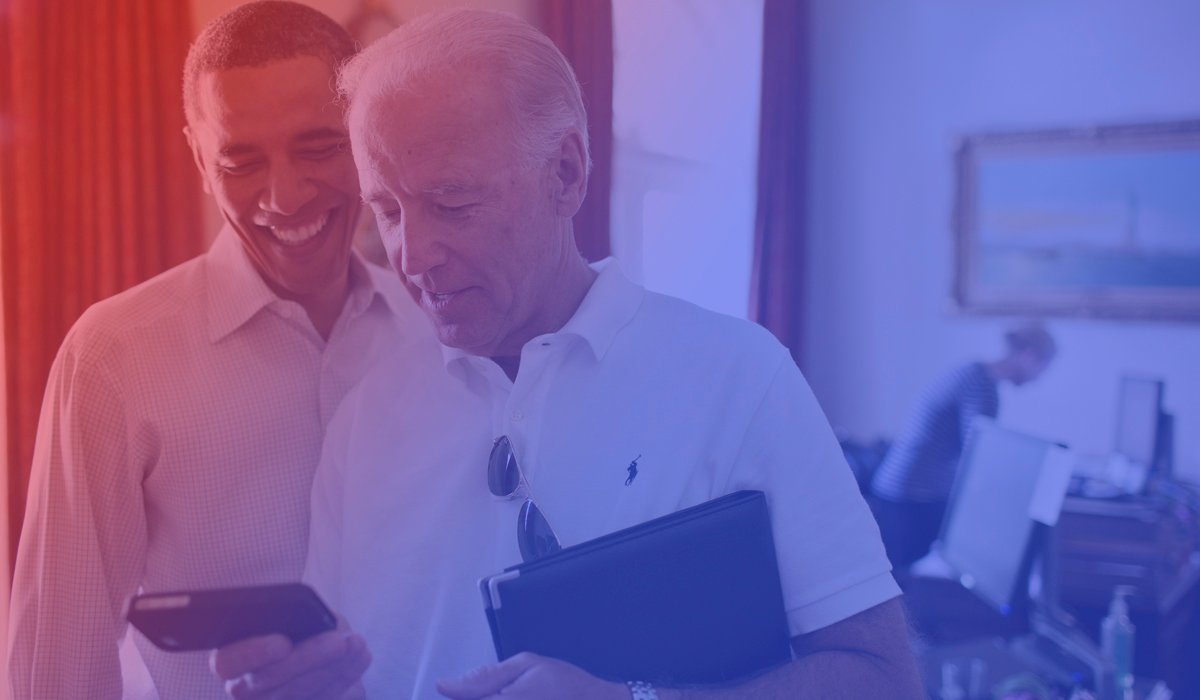When hope and change were in the air during 2008, it was a remarkable achievement that President-elect Barack Obama had accrued 2.5 millionFacebook supporters, 115,000 Twitter followers and 50 million viewers of his YouTube channel.
Fast forward to 2016, and the winner of the White House has 19.4 million Twitter followers, as the wiser and visibly grayer Obama warns that social media deepens political division, amidst an epidemic of so-called fake news whereby newsfeeds on Facebook create a “dust cloud of nonsense.”
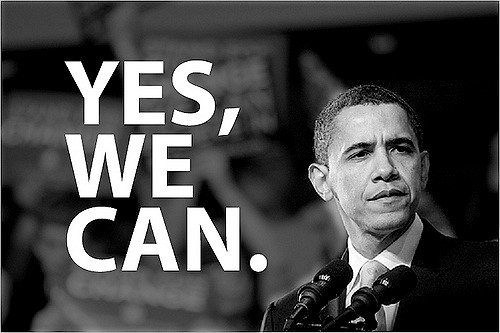
Flickr/CFishy
It’s a stark contrast to the gaudy Facebook banners Obama used (“Our Moment is Now”) when he rode a Facebook coalition into the White House with a record-setting 70 percent of the youth vote, in what became the first election that leveraged the power of social media.
The original social media politician
With ideals of an open society and enthusiasm to shore up our recessed economy, users on social media platforms in 2008 experienced what they felt was “real” connection with a candidate who had sent a message of sweeping change and a new era in America.
The first iPhone had just appeared on the market, too, allowing early adopters and youngsters to quickly tweet, retweet and iMessage notes of encouragement back and forth to one another over the course of the 2008 election.
It was a Digital Revolution, and Obama’s name was attached to it.
Speaking to the New York Times, Democratic strategist Joe Trippi explained it this way: “The tools changed between 2004 and 2008. Barack Obama won every single caucus state that matters, and he did it because of those tools, because he was able to move thousands of people to organize.”
It was the first time in history someone with a keen interest in politics could visit a candidate’s profile, and relate to their likes or dislikes: basketball, democracy, “The Godfather,” and of course “Change.”
Fast forward to Decision 2016
Not much has changed.
Except for the fact that the user base for all social media platforms has grown exponentially: Facebook alone harnesses the power of data collection on 1.79 billion active monthly users. And, as Obama even pointed out, with that many voices all fighting for digital airspace a lot of misinformation has the potential to spread very quickly.
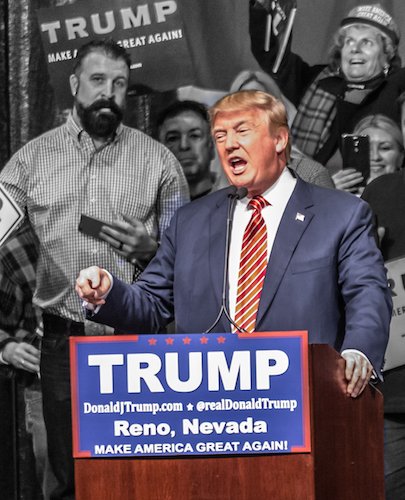
Wikimedia Commons
“People, if they just repeat attacks enough,” he said recently, “and outright lies over and over again, as long as it’s on Facebook and people can see it, as long as its on social media, people start believing it.”
Donald Trump lamented mainstream media as “dishonest” for his whole campaign, and created a visceral one-on-one connection with voters through unfiltered and in-the-moment messaging that became a natural evolution of Obama’s original voter outreach.
Trump was, of course, assisted by a right-wing alternative web presence that — according to Buzzfeed News — contained falsehoods or misinformation favorable to the winning candidate 38 percent of the time. That revelation dovetails with the fact that over half of all Americans cited distrust in mass media during 2016.
Contempt from the president
In a joint appearance with Germany’s Angela Merkel recently, Obama voiced concern over the evolution of social media during his time in office.
“Part of what’s changed in politics is social media and how people are receiving information,” he said. “It’s easier to make negative attacks and simplistic slogans than it is to communicate complex policies.”
“But, we’ll figure it out,” he said with a note of optimism.
>A big development over the course of eight years is what academics are referring to as the self-contained “echo chamber,” assisted by more complex algorithms within Facebook’s interface than existed when the platform was closer to its infancy. The binary framework of liberal and conservative commentary has lent itself to extreme positions, far outside of the mainstream with personal attachment to ideology and the candidates who represent them.
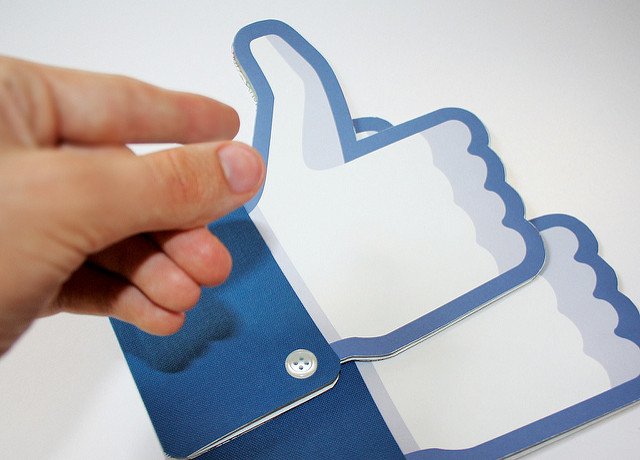
Flickr/Facebook(let)
How social media has changed politics under Obama
Midway through Obama’s term, Unworthy CEO Eli Pariser attempted to document this change in Internet culture through his book, “The Filter Bubble: What The Internet Is Hiding From You.”
The result is what the Stanford Daily is calling a battle of feelings. “On the left,” they report, “it’s played out in the rise of identity politics, with its axiomatic idea that the personal is political. Some of the defining debates of today’s campus left — like those over safe spaces and trigger warnings — hinge on feelings of unease or anxiety and don’t seem concerned with objective or quantifiable conditions.”
And on the right, it’s a crusade of feelings-first conservatism that after eight years of political disgust, has finally found the embodiment of the person who will wreak havoc on all those forces creating economic uncertainty and social degeneration: Immigrants, homosexuals in the bathroom, and high-tax proponents of social welfare.
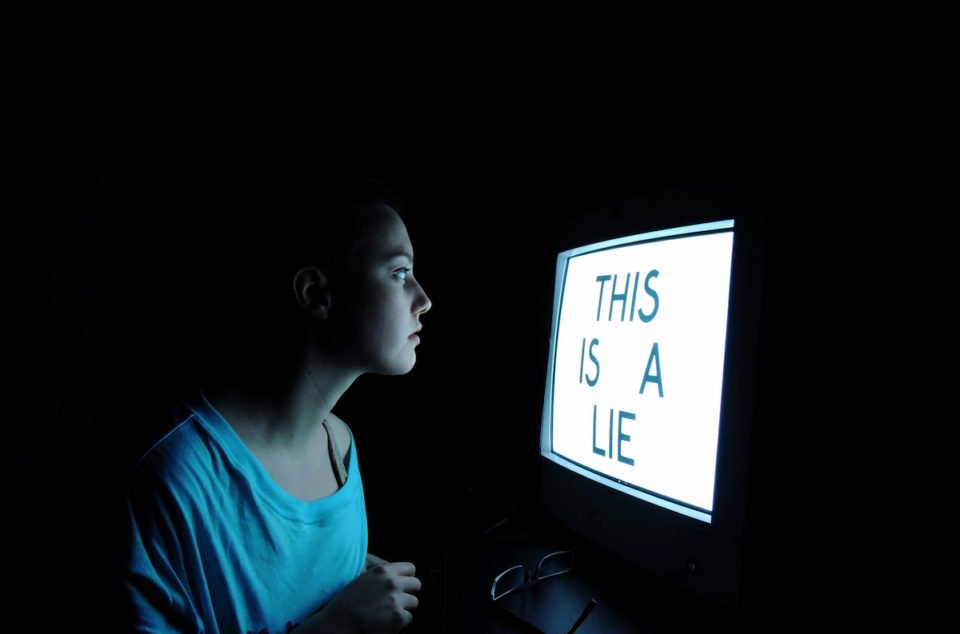
Flickr/Creative Commons
“Trumpism has provided a new, scarier, even more fact-resistant way for Middle America to express its outrage,” writes the Daily.
The hope and change of the Obama years, as expressed through social media, has taken a dark turn indeed. Anger, fear, and hatred have taken their place — and it’s something the nation’s first black president fired a warning shot over during his farewell address, after taking his last ride aboard Air Force One back to his native Chicago.
“If you’re tired of arguing with strangers on the internet, try to talk with one in real life,” the president said, in a shot aimed at echo chambers.
“America is not a fragile thing,” he said of our democracy. “But the gains of our long journey to freedom are not assured.”
